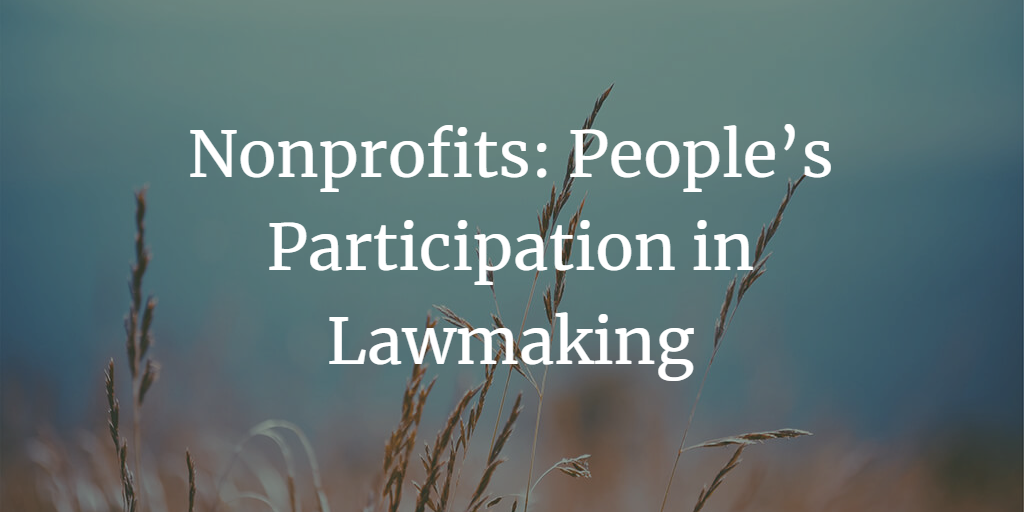How can nonprofits ensure people’s participation in lawmaking?

Table of Contents
Introduction
The Role of Nonprofits in Lawmaking
Strategies for Nonprofits to Enhance Public Participation
Challenges and Possible Solutions
Conclusion
Introduction
The process of lawmaking should ideally be participatory, involving active engagement and contribution from the public. Nonprofits, with their strong ties to communities and advocacy roles, can play a pivotal role in ensuring people's participation in lawmaking. This article explores how they can do this effectively.
The Role of Nonprofits in Lawmaking
Nonprofits serve as an essential bridge between the government and the public. They can provide valuable insights into community needs, advocate for policies that benefit the public, and facilitate public participation in the lawmaking process.
Strategies for Nonprofits to Enhance Public Participation
Public Education: Nonprofits can educate the public about their rights, existing laws, and proposed legislation. This knowledge empowers individuals to engage in discussions, voice their opinions, and influence the lawmaking process.
Community Engagement: Nonprofits can organize community meetings, workshops, and public forums to facilitate discussions on proposed laws. They can also leverage social media and other digital platforms to reach a wider audience and encourage participation.
Advocacy and Lobbying: Nonprofits can lobby lawmakers to consider public opinion in their decision-making process. They can submit public comments, draft alternative policies, and mobilize public support to influence policy outcomes.
Partnerships and Collaborations: Nonprofits can partner with other organizations, influencers, and media outlets to amplify their advocacy efforts and reach a broader audience.
Challenges and Possible Solutions
While nonprofits can significantly contribute to public participation in lawmaking, they may face challenges such as limited resources, regulatory restrictions, and public apathy. Addressing these issues requires strategic planning, fundraising, capacity building, and continuous efforts to engage the public and policymakers.
Conclusion
Nonprofits have a crucial role in fostering public participation in lawmaking. Through public education, community engagement, advocacy, and strategic partnerships, they can ensure the lawmaking process is more democratic, inclusive, and reflective of the public's needs and concerns. Despite the challenges, the impact of their work is significant and necessary for a robust democracy.


